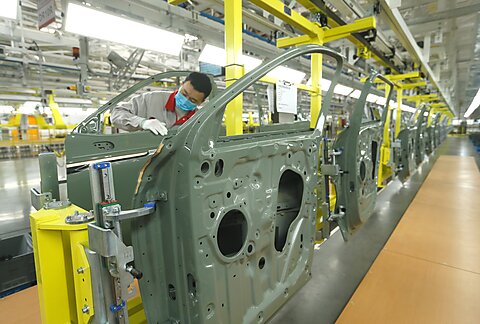Clark Packard
Between the establishment of the People’s Republic of China in 1949 and the 1970s, China’s economy was centrally planned. It engaged in little commerce and extreme poverty was widespread. Beginning in the late 1970s, China began a series of market‐oriented reforms. This policy correction paid dividends; it is estimated that 800 million people were lifted out of extreme poverty over time.
In 1992, after Deng Xiaoping’s famous southern tour, China began downsizing the role State‐Owned Enterprises (SOEs) played in the economy, particularly by subjecting SOEs to more market competition. In 1998 at the 15th Party Congress, Beijing’s SOE reform was turbocharged as many smaller and medium size SOEs were forced to close, privatize, or merge, which “led to a substantial downsizing of the SOE labor force.”
A new National Bureau of Economic Research (NBER) paper by Drs. Hanming Fang, Ming Li, Zenan Wu, and Yapei Zhang finds that the downsizing of SOEs (SOE employment peaked at about 110 million in 1995 but fell to less than 75 million by 2001) “significantly improved the quality of entrepreneurship” in China because “some high‐skilled SOE employees were reluctantly unleased into entrepreneurship.” The authors found “layoff‐induced entrepreneurs outperformed other comparable entrepreneurs.”
A 2021 paper from the International Monetary Fund (IMF) estimates that between 1998 and 2005, the share of SOEs in industrial output fell from around 50 percent to about 30 percent, and that this “transition coincided with rapid aggregate productivity growth, which came in part from the growth of the private sector at the expense of less productive SOEs. This was a welcomed development in China and for the global economy more broadly.
In recent years, however, Beijing is turning its back on the very policy reforms that helped propel it to greater economic growth. Maoist socialism is on the rise under the leadership of Xi Jinping and the role of SOEs in the economy has increased. As a result, dynamism in China is waning.
As the IMF recently noted in its Article IV report on China’s economy in 2022, “SOEs are being tasked to make advances in strategically important sectors and technologies affected by growing geoeconomic fragmentation, further burdening them with responsibilities.” But these “strategic” decisions have costs.
Indeed, it is estimated that China’s SOEs are about 20 percent less productive than private firms operating in the same sector and “the decline in business dynamism is particularly pronounced in sectors and regions with large SOE presence.”
In a forthcoming essay for Cato’s new Defending Globalization project, I will highlight a number of short‐ and long‐term headwinds facing China’s economy, including the increasing role of SOEs. The history of China is not yet written, but policymakers in Beijing should learn from successful policy reforms of the past and begin (re)downsizing the role of SOEs in the economy.

